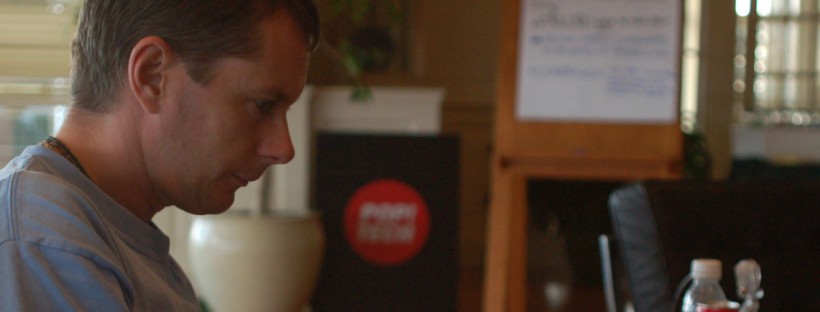CS210 is a project-based Computer Science Innovation & Development course at Stanford University where students work with faculty and staff to build on the spirit of innovation and excellence at Stanford and the larger Silicon Valley area. As part of the course this year, Karina Qian and David Gobaud are working with the Computer Science Department and the Haas Center for Public Service to create Masters and Senior project classes. Here, Karina talks about one project which hopes to create a Google Android version of kiwanja’s FrontlineSMS system
 Students in CS210 usually collaborate with corporate liaisons on software challenges presented by global corporations that require innovation. Teams take projects from concept to completion, which includes defining requirements, iterating through ideas and prototypes and, ultimately, producing a finished work product. To reflect the growing importance of collaboration with the NGO sector, David Gobaud and I are working on allowing students to collaborate with non-profits on software challenges that require innovation, and would expose a new generation of programmers to the possibilities available in applying technology to social problems.
Students in CS210 usually collaborate with corporate liaisons on software challenges presented by global corporations that require innovation. Teams take projects from concept to completion, which includes defining requirements, iterating through ideas and prototypes and, ultimately, producing a finished work product. To reflect the growing importance of collaboration with the NGO sector, David Gobaud and I are working on allowing students to collaborate with non-profits on software challenges that require innovation, and would expose a new generation of programmers to the possibilities available in applying technology to social problems.
In CS210, a team of 3+ creative, bright Stanford Master’s level Computer Science (CS) students tackle one project over two quarters – for a total of six months – starting in January. The final product will be showcased at the Stanford Software Faire held in June.
Right now a group of students are interested in a project that would build a comprehensive all-mobile mass text-messaging program on Android. (For those of you interested in the technical detail, students would essentially impose a REST architecture on top of SMS, basically using SMS as a form of HTTP. Each SMS message would represent a 160 character mini-webpage that would serve as an information architecture for any kind of project, from election-monitoring to rapid disaster relief).
 As a first step the project would involve porting FrontlineSMS and other, existing mass text-messaging platforms (like InSTEDD’s GeoChat) onto Android. The program would then be expanded to create a larger suite of features that would also allow users to process, manage, and respond to data using different software and display data using varying web-based interfaces. It would be open source, allowing users to adapt the program by mashing in other applications as needed.
As a first step the project would involve porting FrontlineSMS and other, existing mass text-messaging platforms (like InSTEDD’s GeoChat) onto Android. The program would then be expanded to create a larger suite of features that would also allow users to process, manage, and respond to data using different software and display data using varying web-based interfaces. It would be open source, allowing users to adapt the program by mashing in other applications as needed.
This project would create a cheaper, more flexible, and more adaptable platform for managing SMS by virtually eliminating the need for computers, and even Internet, in the field. Large chunks of crowd-sourced data can be aggregated in a server in the urban areas, and uploaded onto the web for dissemination and/or further parsing. Crucially, users will no longer need computers to set up a mass SMS platform, only an Android-enabled phone and a phone plan with (unlimited) text messages. The decreased cost of operating SMS-based networks would have a significant impact on non-profit mobile projects.
The class is a great opportunity for a team of 3+ software engineers to devote themselves to the completion of this project for twenty weeks. Students would work in consultation with InSTEDD and FrontlineSMS. However, despite being a non-profit project, the class is primarily directed toward industry and this requires an unrestricted donation of $75,000. We are actively seeking funding to cover this. Thank you.
Karina Qian is co-founder of techY, a Stanford on-campus initiative which aims to engage students in global NGO technology issues
If you, or anyone you know, is interested in helping fund this innovative and exciting project, please contact Ken Banks through the kiwanja.net website. (FrontlineSMS has already been integrated into a human rights monitoring system in the Philippines – blog post pending – and work continues on its integration into the new Ushahidi crowdsourcing platform. Further work is pending on a number of other projects, including with the team at InSTEDD)


 About a year ago I was asked to give an
About a year ago I was asked to give an 


 One of the most active users is
One of the most active users is  Finally,
Finally,